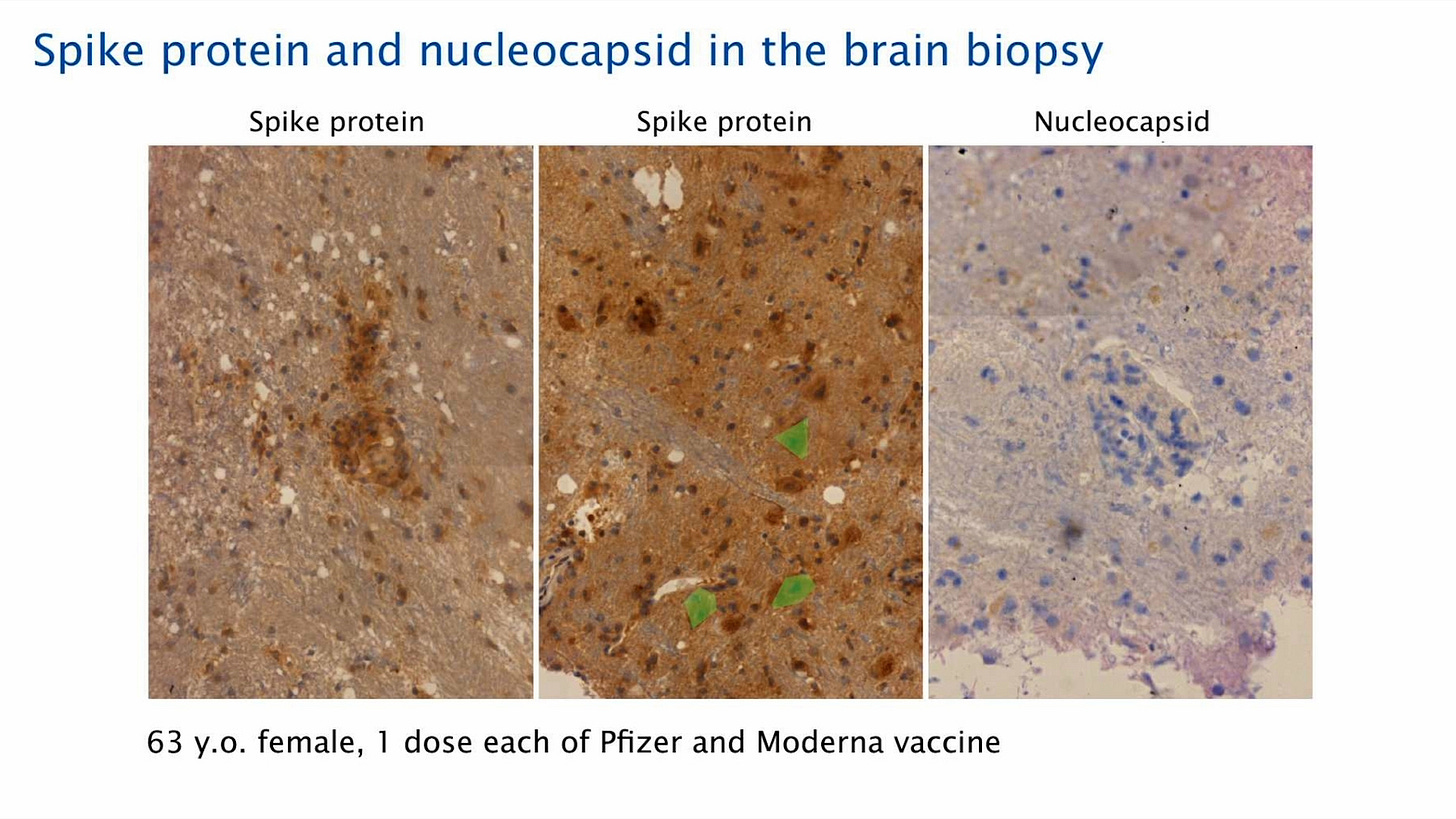Very Rare Brain Biopsy in COVID-19 Vaccinated Patient: A Case of Suspected Malignant Lymphoma
An excerpt from Taylor Hudak’s interview with Prof. Arne Burkhardt.
Watch the full interview here.
Written by Taylor Hudak
A 63 year-old woman, who received one dose each of the Pfizer and Moderna COVID vaccine, began to experience several complications, including neurological symptoms post vaccination. Medical professionals performed several tests on the woman and examined her spinal fluid but were unable to determine a diagnosis.
Doctors then suggested that she may have a malignant lymphoma of the brain, which is a cancerous tumor derived from lymphocytes. A malignant lymphoma can be successfully treated if the exact type of tumor is identified. A needle biopsy of the brain was taken to determine the correct diagnosis in order to provide her the proper treatment.
“A needle biopsy of brain lesions actually is something that must be very rare because in 40 years I have not had a needle biopsy of the brain,” said Prof. Burkhardt.
What is more common, however, is a pathological examination of the brain during surgery. “What I did have is flash frozen sections during open surgery of the brain, of course. They open the brain and find a tumor or something, and then they make a frozen section to get a diagnosis during a surgery.”
The diagnosis
After examining the material taken during the needle biopsy, neither a tumor nor cancer was discovered. Several university pathologists, who also examined the specimen, confirmed this finding.
Prof. Burkhardt says that he instead found very pronounced vasculitis and concomitant encephalitis, which is an inflammation of the brain tissue.
The image on the left shows the brain tissue that was taken during the needle biopsy. The image on the right shows a higher magnification of the same specimen. Additionally, the areas highlighted in light blue show dense aggregation of inflammatory cells, which are selectively located around small vessels.
“So this is definitely vasculitis — a lymphocytic vasculitis. And also some inflammation in the surrounding tissue could be found, so there was also a concomitant encephalitis.”
COVID injection as the cause?
Additionally, Prof. Burkhardt tested the same brain biopsy sample using immunohistochemistry (IHC) to determine the presence of the spike protein and the nucleocapsid. This test, in addition to numerous other factors, allows for pathologists to determine if the presence of spike protein is caused by the vaccine or the viral infection. For a detailed explanation on this testing method, please review our previous report on IHC.
Focusing on the image on the left, Prof. Burkhardt says the tissue sample shows the presence of the spike protein (stained brown), and it is selectively expressed in the small vessel wall. In the center, the large nerve cells, highlighted in green, also express the spike protein. This is an indication of a concomitant encephalitis.
As seen in the image on the right, the nucleocapsid is negative, which is a strong indication that the expression of the spike protein is caused by the vaccination and not the virus.
A common vaccine injury
In addition to Prof. Burkhardt, German pathologist Dr. Michael Mörz also discovered encephalitis in a 76 year-old man who received one dose of AstraZeneca and two doses of Pfizer. He died three weeks after the third injection.
Prof. Burkhardt confirms that encephalitis is potentially a common complication associated with the COVID injection. His expert opinion is not only supported by similar findings presented by Dr. Mörz but also by the abundance of literature on the association between the COVID-19 vaccinations and encephalitis.
“We find minor lesions of the small vessels, and if these (small) vessels are inflamed, the so-called blood-brain barrier breaks down, and that means that the vaccine contents can enter into the brain,” says Prof. Burkhardt. “And I think just recently some Japanese investigators found that the spike protein is selectively toxic for ganglion cells, or nerve cells. Once it (the vaccine contents) gets into the brain, it may cause encephalitis.”
As for the 63 year-old patient in this case, Prof. Burkhardt assumes she has since been treated with anti-inflammatory agents.
Author’s note: For additional information on encephalitis, visit chapter four of “mRNA Vaccine Toxicity,” which describes in detail the mechanisms in which encephalitis can be caused by the COVID mRNA vaccination.







